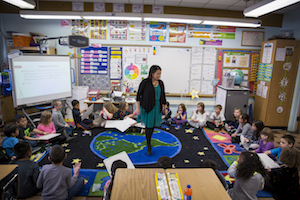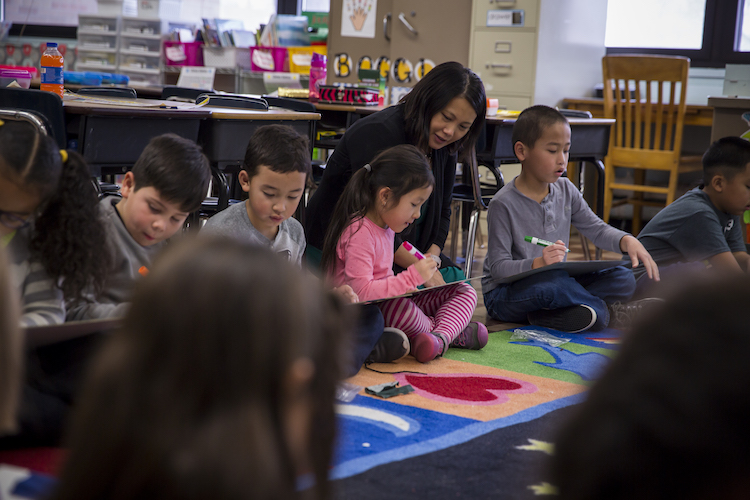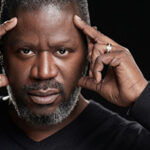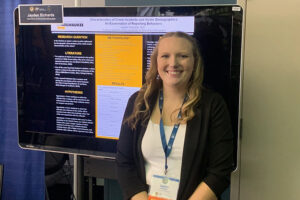When young Mai Shoua Xiong came to the United States from a refugee camp in Thailand, she had no formal schooling and spoke no English. Now a teacher herself, she especially remembers Mrs. Winter, the kindergarten teacher who made all the difference to the little Hmong girl who felt lost in class.
“She was so inspiring for someone from another country,” Xiong says. “Even though I couldn’t understand everything going on, she encouraged me and never gave up on me.”
After that, Xiong was sure what her career would be: “I knew I wanted to help children like me.”

And she has. In fall 2015, Xiong was named the Wisconsin Elementary School Teacher of the Year by the Wisconsin Department of Public Instruction.
She earned her master’s degree in curriculum and instruction from the University of Wisconsin-Milwaukee’s School of Education, and she’s been with Milwaukee Public Schools for 17 years. She’s spent almost all of that time teaching first grade at the Academy of Accelerated Learning on Milwaukee’s south side.
It is her perfect teaching assignment.
“I knew I wanted to teach in MPS and I wanted to be in a diverse setting,” Xiong says. “This is about as diverse as it gets, in terms of student body and teachers.”
Walking the academy’s halls are children from myriad backgrounds – African-American, white, Latino, Hmong, Laotian and from Burma/Myanmar – and they speak a chorus of different languages. Xiong says students, parents and colleagues all work well together. “I’ve always felt very valued at this school,” she adds.
They were all there to help surprise Xiong at a special school assembly in September when the award was announced. “It was a really hot day and I was nine-months pregnant,” she recalls with a laugh. “They were just so happy for me. I couldn’t do it without the kids and the staff and what I’ve learned from everyone.”
The DPI award announcement noted how Xiong focuses her instruction on the needs of individual children and stresses parent involvement. She’s established a number of family-oriented events such as Pastries for Parents, Muffins with Mom, Donuts with Dad and a Thanksgiving Feast. She’s also the school’s website director and volunteered to be part of a model classroom in the Teacher Effectiveness for All Learners Project.
With eight children of her own, she also relies on a strong family support system. “I want to give 110 percent in the classroom,” she says, “and my husband and in-laws make it possible to do that.”
She also credits her UWM work on bilingual education and English language learning for helping her with the diverse learners in her classes. “It was a wonderful experience,” Xiong says. “The whole focus was on using different strategies to help children whose first language is not English.”
She liked the action research aspect of the program, too. In her research, she studied whether using a child’s mother tongue to teach concepts helped with his or her learning in English. She found that it did.
Xiong still speaks Hmong and serves as a Hmong American Peace Academy adviser on its committee for Hmong as a foreign language. She encourages families and children to cherish and keep their own language and culture, though it isn’t always easy, even in her own home. “I talk to my children in Hmong,” she says, “and they ask me to repeat it in English.”
In her classroom, she tries to use all the tools in her teaching kit. Sometimes, it’s just a matter of more explanation to bridge cultural differences. For example, talking about camping or a trip to Wisconsin Dells can be a foreign concept to children born in another country, or those who have never experienced a vacation.
But first-graders are at a good age, she adds, and eager to learn.
“I love to see that twinkle in their eyes when they finally get something they’ve been struggling to understand. I love that I was able to be part of that,” Xiong says. “From my own experience, I know what they went through to get there. That excitement is what I love about teaching.”







